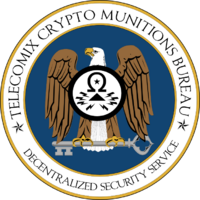Free software.
Have you ever read the EULA that you are presented with when you buy a new computer or piece of software and you are prompted with that “I Agree” checkbox? I’m guessing no. I never have either. You would likely be surprised if you did read it. Here I’m doing a basic compare and contrast between the Windows 7 Ultimate EULA that comes on a new PC and the GPL (Gnu General Public License).
MICROSOFT SOFTWARE LICENSE TERMS
WINDOWS 7 ULTIMATE N2. INSTALLATION AND USE RIGHTS.
a. One Copy per Computer. The software license is permanently assigned to the computer with
which the software is distributed. That computer is the “licensed computer.”
b. Licensed Computer. You may use the software on up to two processors on the licensed
computer at one time. Unless otherwise provided in these license terms, you may not use the
software on any other computer.
c. Number of Users. Unless otherwise provided in these license terms, only one user may use the
software at a time on the licensed computer.8. SCOPE OF LICENSE.
The software is licensed, not sold. This agreement only gives you some rights
to use the features included in the software edition you licensed. The manufacturer or installer and
Microsoft reserve all other rights. Unless applicable law gives you more rights despite this limitation,
you may use the software only as expressly permitted in this agreement. In doing so, you must
comply with any technical limitations in the software that only allow you to use it in certain ways. You
may not
· work around any technical limitations in the software;
· reverse engineer, decompile or disassemble the software, except and only to the extent that
applicable law expressly permits, despite this limitation;
· use components of the software to run applications not running on the software;
· make more copies of the software than specified in this agreement or allowed by applicable law,
despite this limitation;
· publish the software for others to copy;
· rent, lease or lend the software; or
· use the software for commercial software hosting services.26. LIMITATION ON AND EXCLUSION OF DAMAGES.
Except for any refund the manufacturer or installer may provide, you cannot recover any other damages, including consequential, lost profits, special, indirect or incidental damages. This limitation applies to
· anything related to the software, services, content (including code) on third party Internet sites, or third party programs; and
· claims for breach of contract, breach of warranty, guarantee or condition, strict liability, negligence, or other tort to the extent permitted by applicable law. It also applies even if
· repair, replacement or a refund for the software does not fully compensate you for any losses; or
· Microsoft knew or should have known about the possibility of the damages.Taken from: http://www.microsoft.com/About/Legal/EN/US/IntellectualProperty/UseTerms/Default.aspx
The Free Software Foundation & The Gnu General Public License
The Foundations of the GPL
Nobody should be restricted by the software they use. There are four freedoms that every user should have:
the freedom to use the software for any purpose,
the freedom to change the software to suit your needs,
the freedom to share the software with your friends and neighbors, and
the freedom to share the changes you make.Taken from: http://www.gnu.org/licenses/quick-guide-gplv3.html
In the GPL v3 any language devoted to what you may not do with the software is for the purpose of ensuring that the freedoms granted by the license are not infringed. For example, you may not modify it and then license it in a different way.
There is one way in which the GPL and the Microsoft EULA are quite similar. They both provide no real warranty. The GPL is even more absent of warranty as it provides none at all. The MSFT EULA does provide a 90 day warranty for defects.
I have on numerous occasions heard the argument that proprietary software is better if only for the fact that, if it performs poorly or causes damage then there is some recourse against the manufacturer. As paragraph 26 in the MSFT EULA above states, you can see that is not the case.
I suspect that people not familiar with “free as in speech” software have the notion that if it doesn’t cost money then it can’t be good. Those that are familiar understand that is not the case. If you have not had the pleasure to experience free software then you owe it to yourself to give it a try. You can get started with something like The Open Disc .
Be aware that terms are often used that misrepresent the true nature of software licenses. You will hear the term “open source” applied to many software product that may not necessarily be “free as in speech” free. Free software is however inherently open source and this can cause confuision. This is a topic for another discussion but it is good to be aware of it.


![[FSF Associate Member]](http://www.hx4.com/wp-content/uploads/2015/03/FSF-52816.png)


No comments yet.